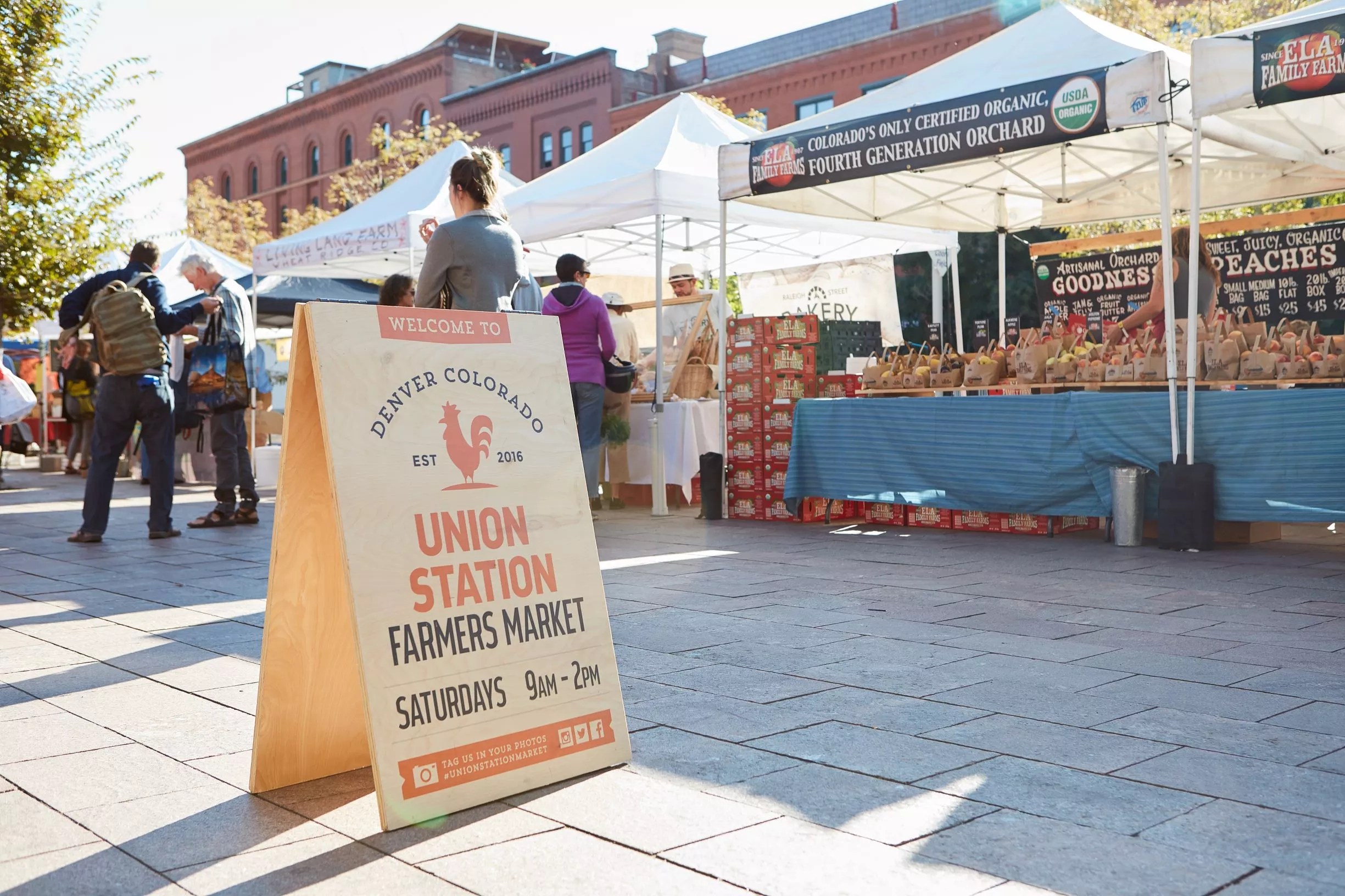
Linnea Covington

Audio By Carbonatix
There are some big shakeups in local farmers’ markets this season, as some of the top players have shut down or changed hands.
Like other businesses, farmers’ markets in and around Denver had to pivot in 2020, adding rules and regulations that altered the free-flowing vibe of these outdoor shopping venues. By 2021, some of the mandates had been lifted, but many markets were still in limbo, especially those run by the board-operated Boulder Country Farmers Market (BCFM) – and particularly its Union Station location in Denver.
Last year, it was apparent that something was amiss at the once-vibrant spot; there were fewer vendors, fewer familiar faces and no live entertainment (a onetime feature also missing from BCFM’s other markets at the time). The idea was to get in and get out, in the most healthy way possible. But this year, the BCFM’s Union Station market will not return at all. Nor will BCFM’s Lafayette market, which opened in 2016 and didn’t run last year, either.

Union Station Farmers Market, 2016-2021.
Ashton Ray Hansen
“We did not get enough diversified veggie growers to have the Lafayette or Denver markets this year, but in the future we hope we can successfully run these again,” wrote on-street markets operations manager Stephanie Hempel in an email addressing the closures.
Chef and restaurateur Paul C. Reilly (of Coperta and Apple Blossom), who helped launch the Union Station market in 2016 and sat on the board up until the 2020 season, was shocked to learn that the BCFM market wasn’t reopening this spring. “It sounds like it’s a combination of COVID exhaustion, the rise of CSAs [community shared agriculture] and that they just couldn’t get enough farmers to commit,” he said, after consulting with a current, unnamed boardmember. “All companies go through transition, and right now BCFM is going through theirs.”
“In transition” accurately describes the current state of the 35-year-old organization, which originally opened in downtown Boulder at the courthouse in 1987. Over the last year, BCFM has undergone a huge staff upheaval, losing longtime executive director Brian Coppom and his, wife Nancy Coppom, who was the finance director. The organization still hasn’t filled all of its empty jobs, despite the fact that its first markets open in Boulder and Longmont on April 2.

Beets, onions and garlic from Croft Family Farm, which used to sell at Union Station.
Linnea Covington
The BCFM isn’t the only farmers’ market company going through changes this season. Kelly Miller, owner and operator of Real Farmers Market, had run the popular Highland Square Farmers Market since 2018; this year, HobNob Events, which runs the South Pearl Street Farmers Market, will take over the space.
“I’m disappointed. I sunk my heart and soul into the Highland market and grew it for the last four years,” says Miller, who built it up and added a layout that shoppers found easy to navigate, weaving in live music, a mini beer garden and a diverse lineup of vendors selling fresh produce, prepared foods, plants and handicrafts.
“What a farmers’ market does for Colorado’s small farms and businesses, it’s incredible,” Miller notes, adding that most retailers and restaurants around the markets see a 40 percent uptick in sales on market days. “A farmers’ market is more than just a special event; it truly supports agriculture and the food chain as a whole.”

Clouds didn’t deter the crowds at the Highlands Square Farmers’ Market.
Linnea Covington
The farmers’ market scene has changed a lot overall in the last few years, Miller says. In part, this shift has been the result of decisions made by the local Chamber of Commerce and merchant associations, which often call in someone like Miller to manage their markets for a portion of the equity. As the popularity of these open-air ventures grows, so does the competition.
“I have been building these relationships with these farms because that’s the backbone of the market. It’s a way to bring the fresh produce in,” says Miller. “But there are only X amount of farms in the state, and they can only do X amount of markets.”
Miller points out that after starting to trend in 2008, farmers’ markets have been growing in popularity every year. “There is more interest in knowing your food, and in 2020 people started taking a bigger interest in nutrition and enhancing immunity,” she notes.

Miller Farms fill-a-bag stand at Highland Square Farmers Market.
Linnea Covington
While Miller won’t be running the Highland Square Farmers Market, her company has taken on a new space in the parking lot of Sol at 3010 East Sixth Avenue, at the edge of Cherry Creek. She could have opened even more farmers’ markets if she wanted to – the interest is there, she says: “In terms of communities, towns and cities, they see the value of creating something that will bring the community together in a healthy and friendly way. Plus, it’s really good for the economics of the town to keep their products and money there.”
The 2022 season will be the first since 2019 with no COVID-related restrictions (knock on wood). As long as there are no climate-charged disasters like deep freezes, violent hail or a complete drought, many of the markets will look the way they did pre-pandemic.
Grab your bags and go.